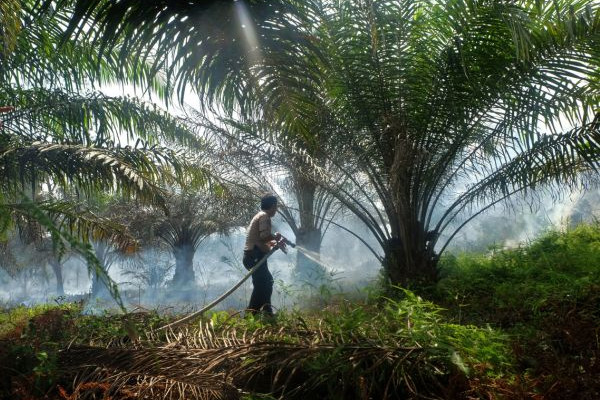Palm oil-based fats as anti-viral agent to combat coronavirus
Published on: Wednesday, February 12, 2020

KUALA LUMPUR: The Malaysian Palm Oil Board (MPOB) is exploring palm oil-based medium-chain triglycerides (MCT) as an anti-viral property, with the aim to boost the immune system to protect from the 2019 novel coronavirus (2019-nCoV) attack, director-general Dr Ahmad Parveez Ghulam Kadir said.
Noting that the process is still at the preliminary stage, he said more studies needed to be conducted in order to confirm the anti-viral effects.
ADVERTISEMENT
“This will not happen overnight, but the potential is there, and we need continuous research explorations to get there.
“Our main concern now is not only the market but to try our best in every possible means to help China and the world by contributing as much we can through research in finding ways to protect from the outbreak,” he told Bernama.
Ahmad Parveez noted that previous preliminary studies suggested that MCT may disintegrate viral envelopes and some researchers have shown their interests in discovering the anti-viral effects of palm-based MCT and MPOB would be working closely with them.
In addition, the board has also noticed increasing demand for palm-based MCT in China since last year, particularly in the applications in food for special medical purposes and powdered meal replacers.
ADVERTISEMENT
According to Ahmad Parveez, there were some Chinese experts who had engaged with MPOB to seek collaborative study related to palm tocotrienols’ possible effect on human immunity, which is now being widely discussed to prevent the coronavirus infection.
“Previous studies have suggested that tocotrienols can benefit immune health by increasing the concentration of anti-tissue transglutaminase immunoglobulin G (anti-TT IgG) antibody in patients prone to immune dysfunction and auto-immunity disorder,” he added.
ADVERTISEMENT
Asked on his concern about the decline in palm oil demand from China, Ahmad Parveez acknowledged that the coronavirus had affected businesses of hotel, restaurant and catering (HORECA) sectors in China as most of the shopping malls and restaurants are closed during this period.
“This has affected the demand for medium pack cooking oils in China which are mainly used in the HORECA sector in blended cooking oil form. These however will be compensated by higher demand for bulk import of palm oil as frying oils for instant noodles, snacks, canned foods and pre-packaged foods.
“Currently, most of the Chinese (in China) are advised to stay at home and told not to leave their house unnecessarily in order to avoid the coronavirus from being spread further. Besides home-cooked food, instant noodles, snacks, canned foods and pre-packaged foods become daily essential supplies.”
He said based on the big data analysis by Eleme app, an O2O (online-to-offline) delivery platform owned by Alibaba Group, food is the top purchased and delivered products in the past few weeks since January 23, followed by purchases and deliveries of daily necessities and medicines.
Stay up-to-date by following Daily Express’s Telegram channel.
Daily Express Malaysia




